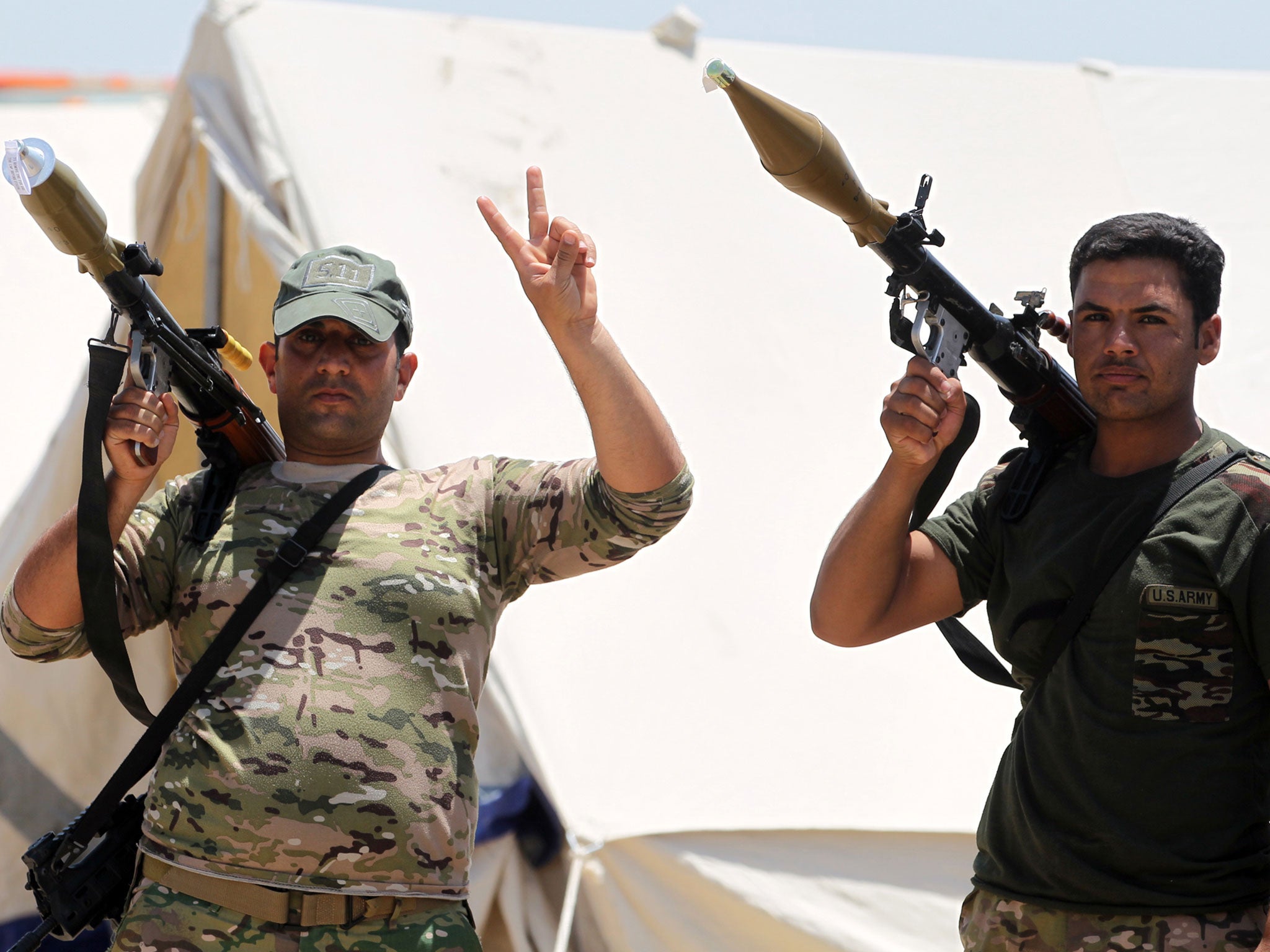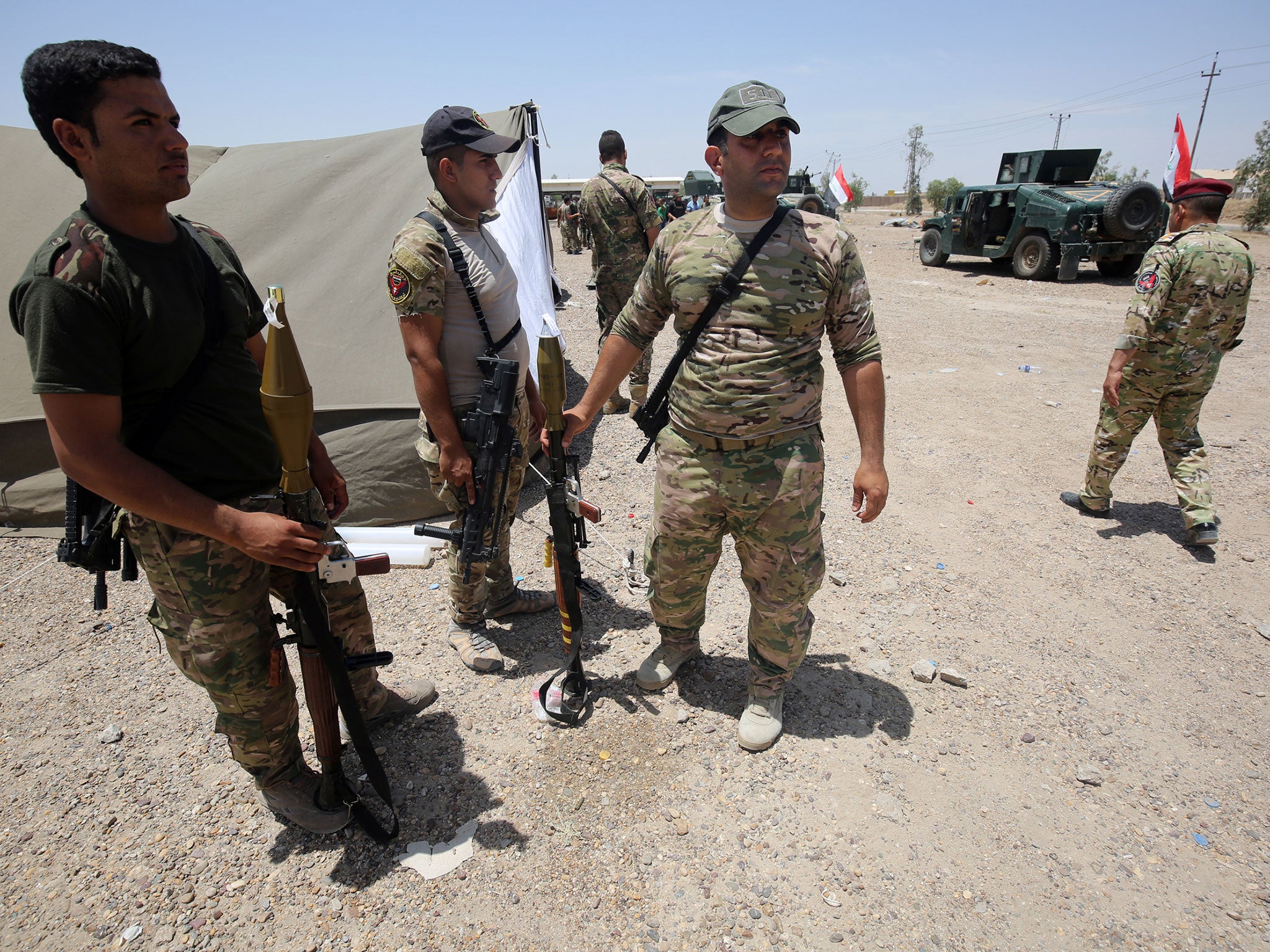Iraqi forces prepare offensive on Isis-held Fallujah, warning residents to flee
About 20 families left the city overnight but some were intercepted by Isis while others were killed by explosives

Your support helps us to tell the story
From reproductive rights to climate change to Big Tech, The Independent is on the ground when the story is developing. Whether it's investigating the financials of Elon Musk's pro-Trump PAC or producing our latest documentary, 'The A Word', which shines a light on the American women fighting for reproductive rights, we know how important it is to parse out the facts from the messaging.
At such a critical moment in US history, we need reporters on the ground. Your donation allows us to keep sending journalists to speak to both sides of the story.
The Independent is trusted by Americans across the entire political spectrum. And unlike many other quality news outlets, we choose not to lock Americans out of our reporting and analysis with paywalls. We believe quality journalism should be available to everyone, paid for by those who can afford it.
Your support makes all the difference.Iraq's military said on Sunday it was preparing to launch an offensive to retake the Isis stronghold of Fallujah and told residents to get ready to leave before fighting started.
Families who could not flee should raise white flags to mark their location in the city 50 km (30 miles) west of Baghdad, the military's media unit said in a statement on state television.
Fallujah, a long-time bastion of Sunni Muslim jihadists, was the first city to fall to Isis, in January 2014, six months before the group swept through large parts of Iraq and neighbouring Syria.
The Iraqi army, police and Iranian-backed Shi'ite Muslim militias, backed by air strikes from a US-led coalition, have surrounded Fallujah since late last year. The jihadists have been preventing residents leaving for months.
The army "is asking citizens that are still in Fallujah to be prepared to leave the city through secured routes that will be announced later", the statement said, without spelling out when any offensive might start.
Deputy district council chairman Falih al-Essawi said three corridors would be opened for civilians to camps west, southwest and southeast of the city, and a subsequent military statement said some residents had begun to flee.
Residents told Reuters about 20 families had set out from a southern front-line neighbourhood overnight, but only half of them made it out. Some were intercepted by Isis, while others were killed by explosives planted along the road by the jihadists.

The United Nations and Human Rights Watch said last month that residents of Fallujah were facing acute shortages of food and medicine amid a siege by government forces. Aid has not reached the city since the Iraqi military recaptured nearby Ramadi, the Anbar provincial capital, in December.
Essawi told a local television channel that more than 75,000 civilians remained in Fallujah, in keeping with a recent US. military estimate of 60,000 to 90,000. Around 300,000 people lived in the Euphrates river city before the war.
Known as the "City of Minarets and Mother of Mosques", Fallujah is a focus for Sunni Muslim faith and identity in Iraq. It was badly damaged in two offensives by US forces against al-Qaeda insurgents in 2004.
Saad al-Hadithi, a spokesman for Prime Minister Haider al-Abadi, said the "liberation" of Fallujah would help restore normal life to Anbar, the western province over which Isis took nearly complete control in 2014.
Following recent government offensives in Rutba and Hit, control of Fallujah would secure the road more than 500 km (300 miles) from Baghdad to the Jordanian border and northwards to Haditha, 190 km northwest of the capital.
But Isis still controls vast swathes of territory and major cities such as Mosul in the north. Iraqi authorities have pledged to retake Mosul this year, though in private some officials question whether the army will be ready in time.
Reuters
Join our commenting forum
Join thought-provoking conversations, follow other Independent readers and see their replies
Comments